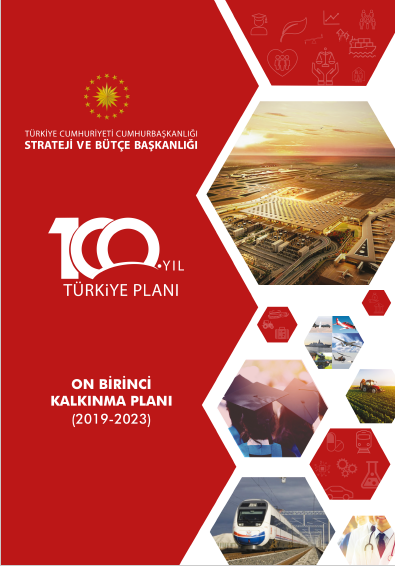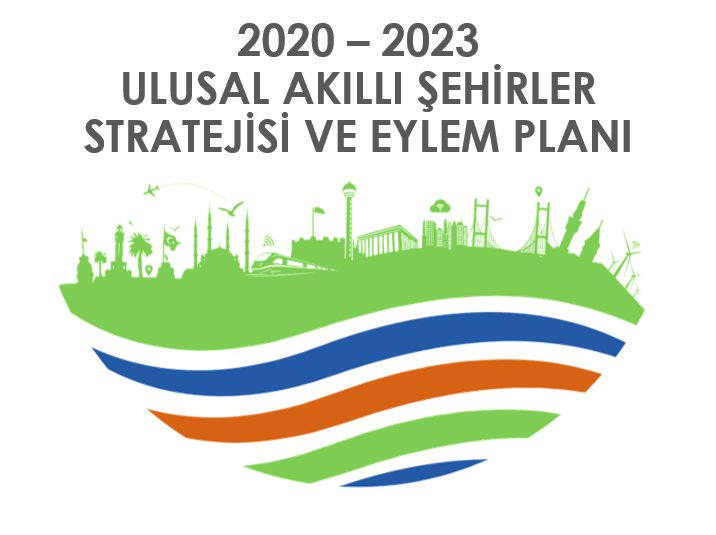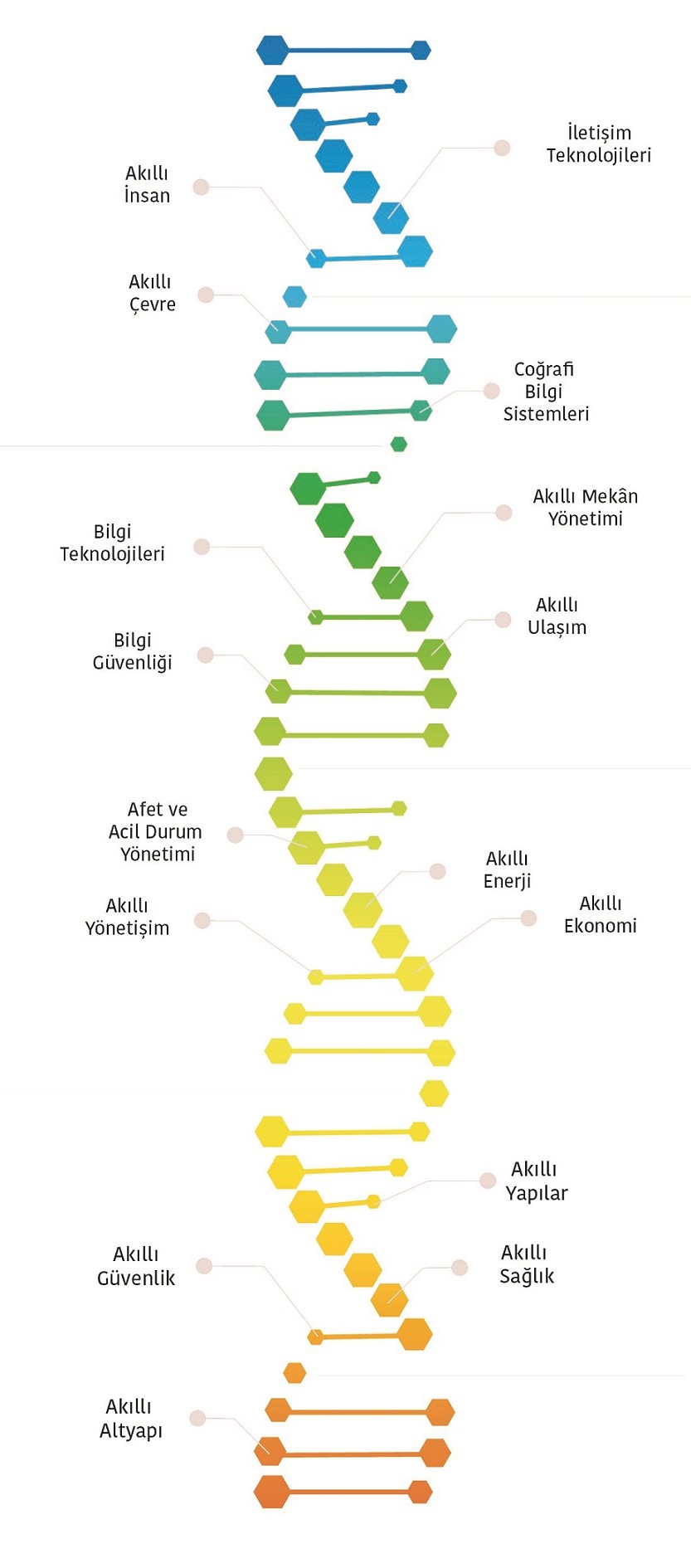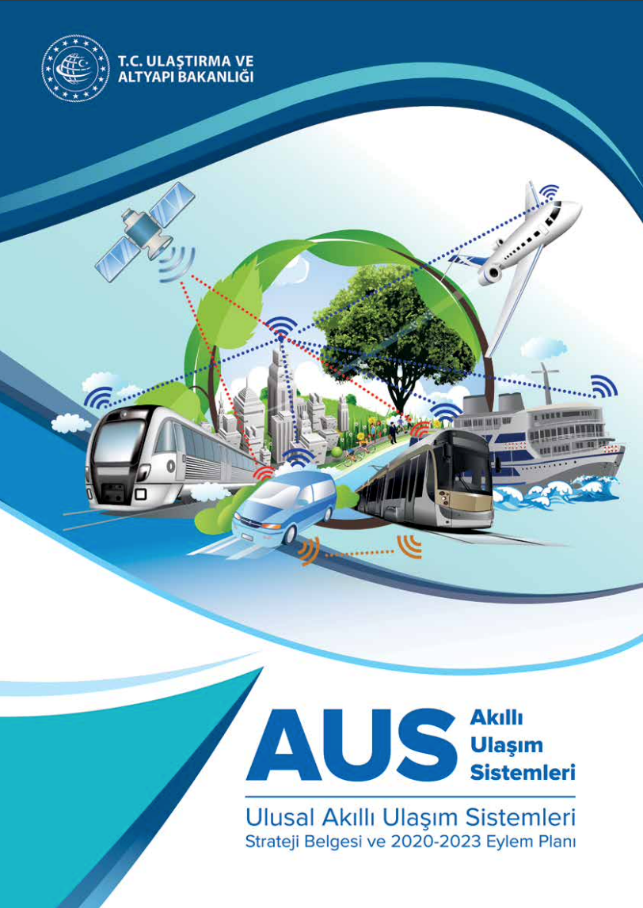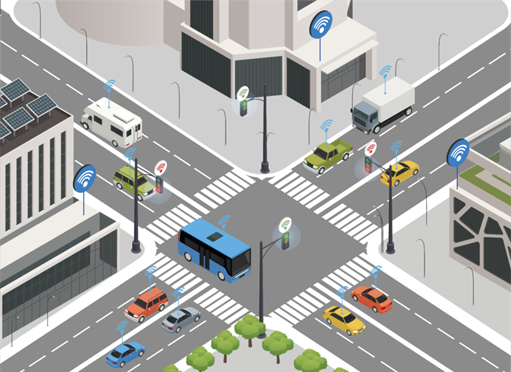The Institute's goal is to perform research in the high-priority fields of smart city and transportation technologies, infrastructure and planning, autonomous and next-generation vehicles, and sectoral application demands.
Smart City technology that supports collaboration among stakeholders at the local level allows the development of innovative applications by ensuring the interoperability of systems with components of the data with the effective management solutions to the city's needs, quality of life, efficiency of urban services and the sustainability of economic, social, environmental and cultural aspects by addressing refers to more livable and sustainable cities for its citizens by targeting to increase. In addition, the system that provides accessibility with the infrastructure and transportation facilities of cities, protects energy, provides quick solutions in emergency situations and problems, efficient resource use and coordination with all stakeholders comes to mind.
In the field of Smart City and Smart Transportation, which is mentioned in the 10th Development Plan of the Presidency of the Republic of Turkey, approaches to determining strategies and action plans have been put forward.Eleventh Development Plan (2020-2023):
In the action determined within the scope of Logistics and Transportation; 511.5. The architecture related to Intelligent Transportation Systems (AUS), which provides energy and time savings, traffic safety, and effective use of road capacity in the road network, will be completed and put into practice, including local governments.
In the action determined within the scope of Livable Cities, Sustainable Environment; 666. To ensure the sustainable development of cities; Studies such as the establishment of an accessible high-connected urban transport system require the participation and comprehensive cooperation of all stakeholders. 683. Local governments will be encouraged to prepare smart city strategies and road maps to follow, smart city projects will be selected and implemented by taking into account the areas and capabilities prioritized at the national level, and the development of domestic production for smart city applications will be supported. In this context, it will provide guidance based on the National Smart City Strategy and Action Plan.
In the action determined within the scope of Urban Infrastructure; 704. In order to use the existing infrastructure more efficiently, to increase traffic safety, to manage the transportation demand correctly and to make a more effective planning, a national scale ITS Strategy Document will be prepared, ITS architecture will be developed and ITS applications will be expanded. Thus, the National ITS Strategy Document Action Plan will be completed and put into practice. And related projects will be completed. 704.3. Especially in metropolitan cities, dynamic passenger, driver and pedestrian information systems will be established in the urban transportation network.
In addition, within the scope of development plans; It is aimed to increase the number and diversity of postgraduate programs for priority sectors and to open interdisciplinary postgraduate programs.
Within the scope of YÖK's priority research areas (2022), in the thesis studies to be carried out with postgraduate education in the field of Smart City and Transportation Technologies;
- Directly related to the field of Sustainable and Intelligent Transportation,
- Remote Sensing and Geographic Information Systems
- Data Science and Cloud Computing (including Big Data Technologies)
- Artificial Intelligence, Machine Learning, Augmented and Virtual Reality,
- It is aimed to conduct applied research activities indirectly related to the fields of network technologies (5G, Broadband, Internet of Things, Blockchain Technology).
Within the scope of the European Union Horizon Europe Program 2022, the "Climate, Energy and Mobility" cluster as the 5th Cluster within the 2nd Component Global Problems and Industrial Competition can be evaluated within the scope of Intelligent Transportation. Expressed as the Green and Digital Transition, it aims to transform Europe's mobility, energy, construction and production systems into the first digitally managed circular, climate-neutral and sustainable economy.
Within the scope of Goal 6 - Transportation and Smart Mobility of this cluster, it is aimed to develop safe and smart transportation services in freight and passenger transportation. The priority research areas supported in this target are;
- Connected, Cooperative and Autonomous Mobility
- Multimodal Transportation Systems (Logistics, infrastructure, urban transportation, etc.)
- Transportation Safety and Resistance.
TÜBİTAK 2022-2023 Priority R&D and Innovation Issues study focuses on “green” and “digital” technologies; It was determined by the Presidential Science, Technology and Innovation Policy Board (BTYPK) with the coordinated technical support of the Ministry of Industry and Technology and TUBITAK. R&D and innovation issues related to Smart City and Transportation technologies are summarized below with their field and scope:
- Artificial Intelligence - Mobility Sector - Autonomy: Technology Development and Innovation Projects will be supported in order to develop Artificial Intelligence-based systems that will be used in autonomous air/land/sea vehicles, rail systems and commercial vehicles for civil use and that will increase driving safety and autonomy level.
- Sustainable Intelligent Transportation: Applied Research, Technology Development and Innovation Projects will be supported to develop integrated, efficient, safe, environmentally friendly smart transportation systems using open data, artificial intelligence and advanced digital technologies.
- Sustainable Intelligent Transportation: Applied Research, Technology Development, Innovation Projects for the transformation of the transportation network will be supported with connected, cooperative, fully autonomous (driverless) mobility systems containing innovative sensing systems, communication systems, electronic equipment with high processing capacity.
- Sustainable Intelligent Transportation: Applied Research, Technology Development and Innovation Projects will be supported to develop integrated, efficient, safe, environmentally friendly smart transportation systems using open data, artificial intelligence and advanced digital technologies.
- Climate Change, Environment and Biodiversity: Applied Research, Technology Development and Innovation Projects will be supported to develop GIS and remote sensing supported optimization technologies and platforms with high resilience and sustainability, net zero greenhouse gas emission target, innovative integrated urban planning approach.
- Clean and Circular Economy: Integrating digital technology applications such as advanced sensor technologies, artificial intelligence, machine learning and remote sensing and life cycle assessment approaches to be used in all sectors and buildings for the purposes of monitoring greenhouse gas emissions, waste minimization, process optimization and increasing energy efficiency. Applied Research, Technology Development and Innovation Projects for the development of technologies will be supported.
In summary, the Smart City and Transportation Technologies study area;
Within the scope of Development Plans, Smart City Strategy and Action Plan, Smart Transportation Strategy and Action Plan, sectoral application and areas in need of competence in related fields are accepted. In addition, within the scope of the European Commission Horizon 2020 program, Smart Cities, Transportation and Smart Mobility clustering, priority research areas updated in YÖK 2022 and TÜBİTAK 2022-2023 Priority R&D and Innovation Topics determined within the Presidency Science, Technology and Innovation Policy Board (BTYPK) ” and “digital” technologies have been determined as the area in need of priority research.
